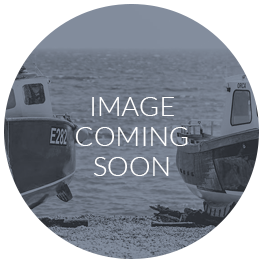
No one disputes the need for the inshore fleet to have a voice. However, there are many differing views on how to accomplish that. This is the story of how Mandy Wolfe approached Fishermen across Lyme Bay to see if there was an interest in forming an organisation.
We knew this was going to take time. There is no way to rush this process, and getting Fishermen involved, asking them to ignore the loss of hope, asking them to ignore the feeling that this will be, yet again, another futile endeavour, where they are ultimately disappointed and disadvantaged was difficult. Mandy couldn’t promise the Fishermen anything, only that this had not been done before, but she had every confidence in them and in the dream of a united voice for the Fishermen.
Many fishermen are already part of local groups or organisations. But some feel their voices aren’t really being heard. Others may not be represented at all. Some organisations are set up from the top down. That means the rules and goals are decided first—before fishermen are even asked to join.
A fishermen-led organisation works differently. It must be built from the bottom up, with fishermen involved from the very beginning. This guide is here to help you understand how to create an organisation that truly represents fishermen—because it’s made by fishermen.
In a fishermen-led organisation:
This guide will take you step by step through the process of building an organisation that gives fishermen real ownership, real voice, and real power.
By following a clear and open process, you can build a strong and trusted organisation. One that genuinely speaks for fishermen—because it’s run by them. This helps make sure you are not just claiming to represent fishermen but can actually show how their views and voices are being heard and acted on. That’s the difference between real representation and just saying it.
No one disputes the need for the inshore fleet to have a voice. However, there are many differing views on how to accomplish that. This is the story of how Mandy Wolfe approached Fishermen across Lyme Bay to see if there was an interest in forming an organisation.
We knew this was going to take time. There is no way to rush this process, and getting Fishermen involved, asking them to ignore the loss of hope, asking them to ignore the feeling that this will be, yet again, another futile endeavor, where they are ultimately disappointed and disadvantaged, was difficult for me. I couldn’t promise the Fishermen anything, only that this had not been done before, but I had every confidence in them and in the dream of a united voice for the Fishermen.
We estimated 3-4 months for engagement. Over the course of these months, the action plan was to:
We would recommend researching:
What days/times to hold meetings


Lorem ipsum dolor sit amet, consectetur adipiscing elit. Ut elit tellus, luctus nec ullamcorper mattis, pulvinar dapibus leo.
Web Design Devon by b:web
| Cookie | Duration | Description |
|---|---|---|
| cookielawinfo-checkbox-analytics | 11 months | This cookie is set by GDPR Cookie Consent plugin. The cookie is used to store the user consent for the cookies in the category "Analytics". |
| cookielawinfo-checkbox-functional | 11 months | The cookie is set by GDPR cookie consent to record the user consent for the cookies in the category "Functional". |
| cookielawinfo-checkbox-necessary | 11 months | This cookie is set by GDPR Cookie Consent plugin. The cookies is used to store the user consent for the cookies in the category "Necessary". |
| cookielawinfo-checkbox-others | 11 months | This cookie is set by GDPR Cookie Consent plugin. The cookie is used to store the user consent for the cookies in the category "Other. |
| cookielawinfo-checkbox-performance | 11 months | This cookie is set by GDPR Cookie Consent plugin. The cookie is used to store the user consent for the cookies in the category "Performance". |
| viewed_cookie_policy | 11 months | The cookie is set by the GDPR Cookie Consent plugin and is used to store whether or not user has consented to the use of cookies. It does not store any personal data. |